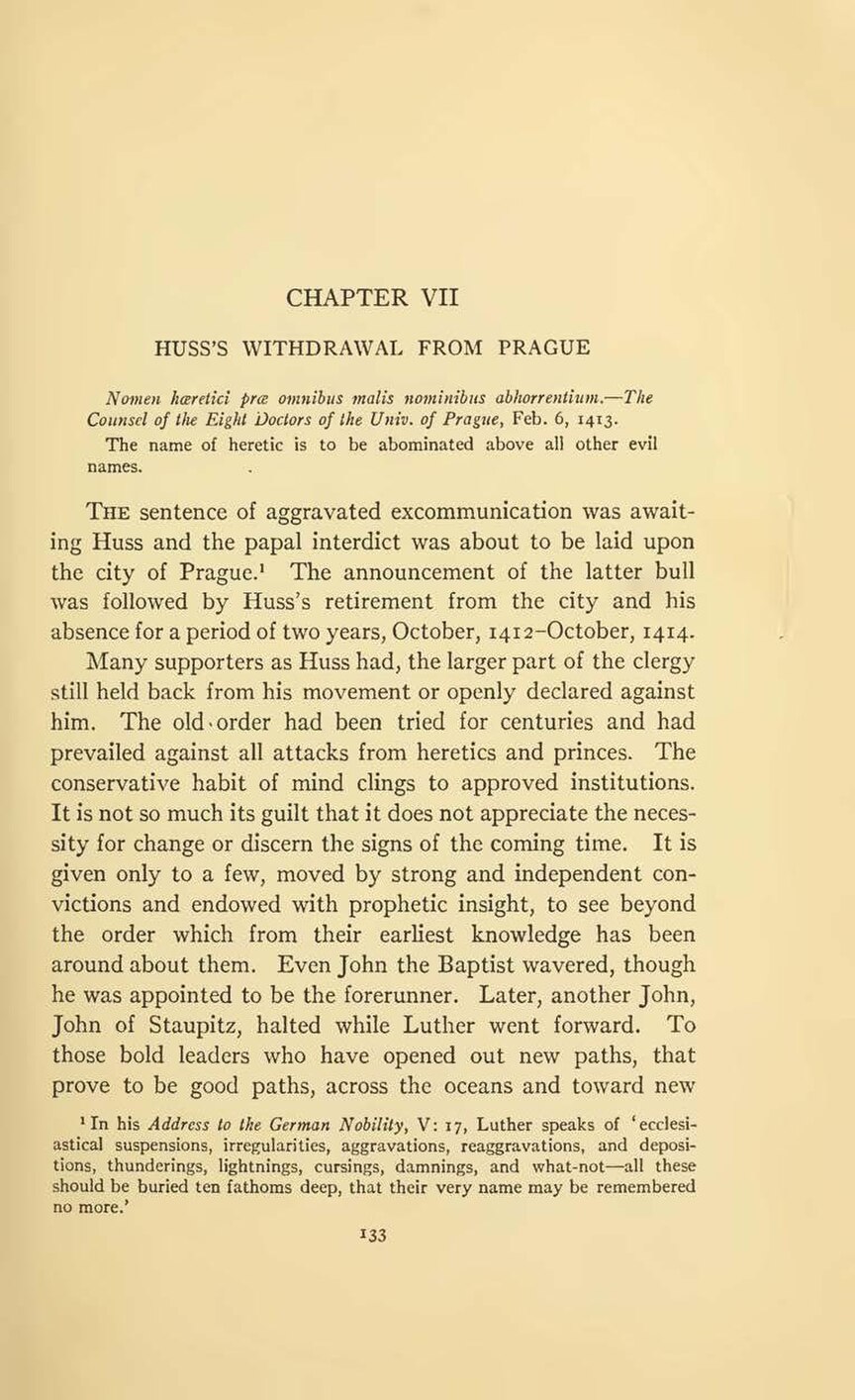CHAPTER VII
HUSS’S WITHDRAWAL FROM PRAGUE
Nomen hæretici præ omnibus malis nominibus abhorrentium.—The Counsel of the Eight Doctors of the Univ. of Prague, Feb. 6, 1413.
The name of heretic is to be abominated above all other evil names.
The sentence of aggravated excommunication was awaiting Huss and the papal interdict was about to be laid upon the city of Prague.[1] The announcement of the latter bull was followed by Huss’s retirement from the city and his absence for a period of two years. October, 1412–October, 1414.
Many supporters as Huss had, the larger part of the clergy still held back from his movement or openly declared against him. The old order had been tried for centuries and had prevailed against all attacks from heretics and princes. The conservative habit of mind clings to approved institutions. It is not so much its guilt that it does not appreciate the necessity for change or discern the signs of the coming time. It is given only to a few, moved by strong and independent convictions and endowed with prophetic insight, to see beyond the order which from their earliest knowledge has been around about them. Even John the Baptist wavered, though he was appointed to be the forerunner. Later, another John, John of Staupitz, halted while Luther went forward. To those bold leaders who have opened out new paths, that prove to be good paths, across the oceans and toward new
- ↑ In his Address to the German Nobility, V: 17, Luther speaks of ‘ecclesiastical suspensions, irregularities, aggravations, reaggravations, and depositions, thunderings, lightnings, cursings, damnings, and what-not—all these should be buried ten fathoms deep, that their very name may be remembered no more.
133
